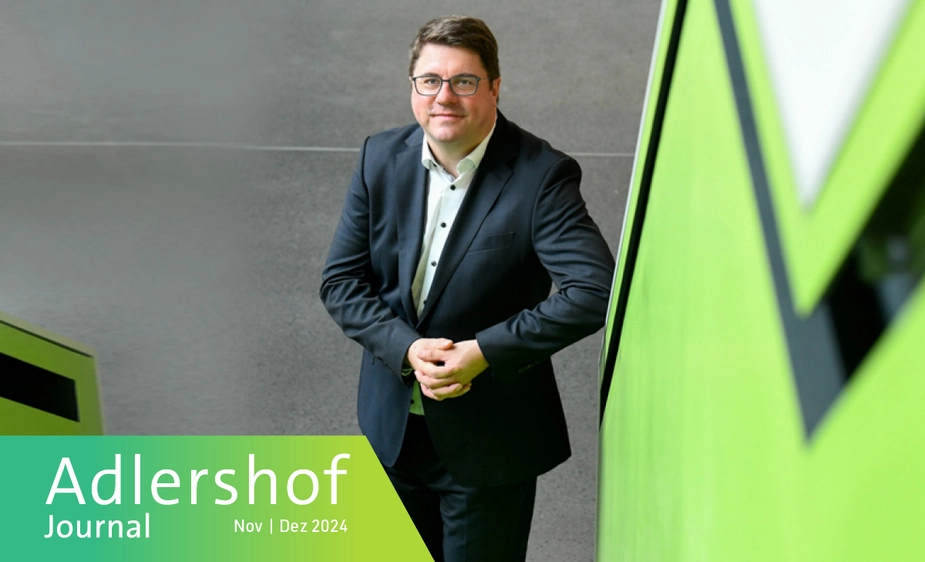The molecule sleuth
Carsten Engelhard monitors the reliability of chemical analyses
Searching for a needle in a haystack. Is that the appropriate metaphor? It could make it easier for a layperson to understand how Carsten Engelhard spends his workdays. In both research and teaching, his home has been analytical chemistry. His work involves, as he puts it, “the development, optimisation, and application of instrumental measurement techniques” to detect “chemical elements, molecules, or molecular structures” in unknown samples.
Hunting down molecules is the central topic of Engelhard's scientific life. In his PhD thesis that he completed in 2007, he focused on optical emission spectroscopy, a method that makes possible detecting up to 60 elements in very low concentrations in liquid samples. While doing this, he enhanced a procedure that significantly reduces the gas and energy consumption used for these measurements.
Since March this year, Engelhard has been head of Department 1 at the Federal Institute for Materials Research and Testing (BAM), “Analytical Chemistry; Reference Materials”. With eleven departments across locations in Lichterfelde and Adlershof, the agency’s self-proclaimed mission is to improve “safety in technology and chemistry”, while Engelhard’s department is responsible for safeguarding innovation and reliability in chemical analysis methods: “Together with our partners, we continuously work on new possibilities for more precise and faster measurements.”
A key task here is the development and production of so-called reference materials—solids, liquids, and gases with known and certified properties that serve as benchmarks in laboratories all over the globe for verifying their measurement results. “This work is technically challenging and costly,” Engelhard explains, “making it difficult for the private sector to undertake.” Those in need of reference materials can buy them at an online store that BAM operates.
Siegen, Münster, Bloomington, Adlershof—these are the stages of the professor's life and career to date. He was born in Siegen 47 years ago and has been a faculty member at the university there since 2013. He studied and earned his doctorate in Münster and then spent two years conducting research in Bloomington, a small university town in the American Midwest, among “many cornfields, a beautifully green campus and modern laboratories.” He also “very much appreciated” free concerts regularly hosted by the music department.
Back in Münster, Engelhard led a group of early-career researchers, master’s students, and doctoral candidates for three years. It was his first experience with pursuing his own research and having access to a laboratory funded by the German Research Foundation. One of his former team members is now a professor in the US: “Supporting young talent is very important to me. It brings me immense joy to see people who I have mentored succeed in academia or the industry.
Now based in Adlershof, Engelhard expresses: “My heart lies in research.” He feels well-positioned here: “Excellent infrastructure, highly specialised scientists with whom I can drive exciting new research forward, modern laboratories.” Moreover, an intellectual climate that he describes using an English term, “vibrant”, adding: “I can attend lectures within walking distance every day.” Unlike many who work here, Engelhard actually lives in Adlershof, while his wife and three children still live in the Münsterland.
Dr. Winfried Dolderer for Adlershof Journal
BAM - Department 1 - Analytical Chemistry, Reference Materials
